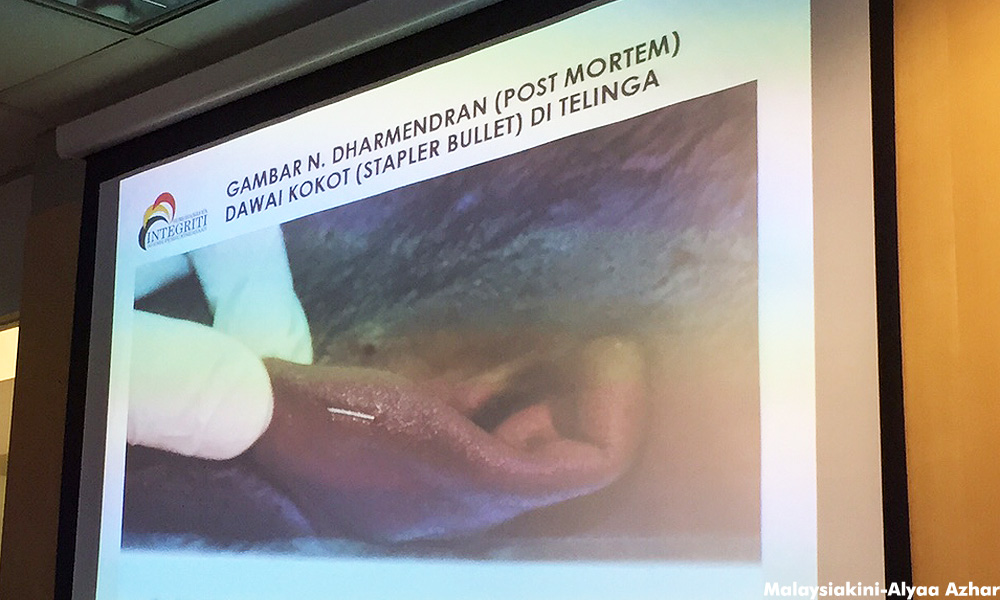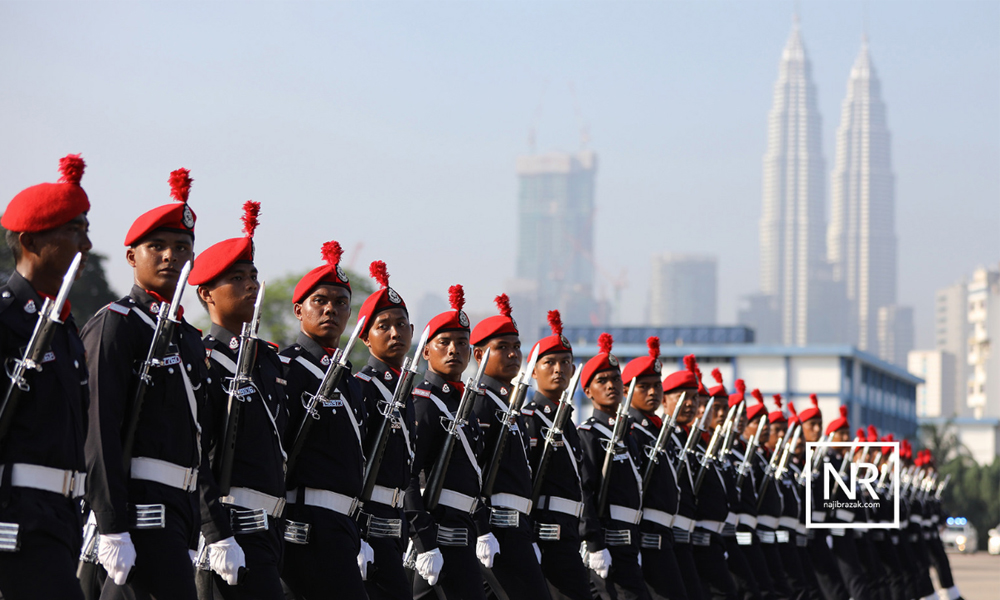COMMENT | The Independent Police Complaints and Misconduct Commission (IPCMC) was first recommended by the Royal Commission to Enhance the Operation and Management of the Royal Malaysia Police in 2005. A draft bill was proposed by the RCI, but did not become law.
Instead, the Enforcement Agency Integrity Commission (EAIC) was established in 2009, and while it has many positive elements, it has been undermined by its limited resources and the fact that it monitors 21 enforcement agencies.
The overwhelming majority of complaints to the EAIC relate to the police alone, indicating the need for an authority to deal specifically with police misconduct. In May 2019, an agreement was finally reached that it was time for the IPCMC to be established.
We cautiously welcome the IPCMC Bill 2019 and commend the inclusion of a number of strong provisions, such as giving the commission the power to conduct investigations on its own initiative.
However, there is still much room for improvement. We have submitted a detailed memorandum to the government outlining our recommendations, which are based on comparative analysis with other jurisdictions, the EAIC Act 2009 and the 2005 bill, and are supported by examples from our own experience.
Lawyers for Liberty has been advocating for IPCMC and a change in the culture of impunity in the police for many years.
Our experience representing victims of police brutality, deaths in custody, shootings and cover-ups leaves no doubt that the IPCMC is necessary to ensure accountability and restore public confidence in the police force.
Some of the strongest provisions of the EAIC Act and the 2005 bill have not made it into the IPCMC Bill 2019.
For example, while the IPCMC will have the power to examine persons and obtain documents, it should also have the full range of powers that the EAIC currently has, including powers to conduct public hearings, summon witnesses and issue warrants where appropriate.
Similarly, we acknowledge that the IPCMC can establish a task force with all the powers of investigation as contained in the Criminal Procedure Code, but these powers should be available to the IPCMC, whether or not a task force is established.
Key recommendations in our memorandum include the extension of the scope of misconduct, as defined in the IPCMC Bill 2019.
Non-compliance with standard operating procedures is considered misconduct, but the general public do not have access to SOPs. Until police SOPs, in line with international standards, are standardised and made available to the wider public, it will be impossible for anyone to identify and report misconduct under this section.
Furthermore, the current definition of misconduct excludes Police Regulations and Inspector-General’s Standing Orders (IGSOs), which are classified under the Official Secrets Act 1972, and can cover anything from uniform regulation to the discharge of firearms.
OSA should not apply to IPCMC operations
Excluding these matters from the scope of misconduct makes a mockery of the IPCMC, as it would eliminate almost all police matters from its jurisdiction.
Therefore, we recommend that IGSOs should be included in the scope of misconduct and along with police SOPs, be made available to the public.
For transparency and effectiveness, we recommend that the Official Secrets Act not apply to the operations of the IPCMC, as was proposed by the RCI in the 2005 bill.
The system of referrals to other agencies needs to be clarified. It should be made clear that a decision to refer a matter to the MACC or the Attorney-General’s Chambers does not mean that the IPCMC’s investigation ends there.
Professional misconduct is not the same as corruption or other criminal charges, and does not carry the same standard or burden of proof.
A person may be found not guilty of a criminal offence for many reasons, such as poor investigation by the police themselves, a lack of willingness among witnesses to testify against them, or a failure of the prosecution. But in the same case, there may be enough evidence to show misconduct.

In the case of N Dharmendran, despite the police claiming that he died in custody following breathing difficulties, the postmortem revealed the cause of death to be diffuse soft tissue injuries due to multiple blunt force traumas.
Dharmendran was found to have 52 different injuries, including stapler bullets in his ears. Four police officers were charged with his murder, but subsequently acquitted.
Yet, the EAIC investigation revealed the depth of the police cover-up, including fabricated lock-up entries, false content in police reports and delays in the investigation and communication with the family.
This is one example among many which shows that an independent misconduct investigation is crucial in uncovering the truth, regardless of whether a case is also investigated by another authority.
We have also urged the government to reconsider the disciplinary procedures, particularly how they apply to the inspector-general of police in the IPCMC Bill 2019. For most cases, the Disciplinary Board, comprising members of the IPCMC, the IGP and a representative of the Police Force Commission will preside over these cases.
This is a concern when we recall that, for example, previous IGP Khalid Abu Bakar was involved in subverting the criminal investigation into the custodial death of A Kugan (as then Selangor police chief), diverting investigations into the 1MDB scandal, and was widely criticised for delays in the investigations into the mass graves found in Wang Kelian.
In light of the fact that Khalid and previous IGPs have been involved in acts of misconduct and maintaining the culture of impunity, it is not appropriate for the IGP to sit on the Disciplinary Board.
Further, given Malaysia’s history with previous IGPs who have been instrumental in high-level cover-ups, it is essential that the IPCMC has disciplinary powers over the IGP.
Although the IPCMC Bill 2019 does provide a mechanism for complaints against the IGP, it states that a Special Disciplinary Board would have to be set up, making such complaints more complex.
There are few details about how the Special Disciplinary Board would deal with complaints upheld against the IGP, except that it would be established by the chief secretary to the government, who is not a member of the IPCMC.
We have recommended that this provision is amended, as it is crucial that the IPCMC has jurisdiction over misconduct committed by any member of the police force, including the IGP.

The specific mention of cases of grievous hurt or death in custody is a positive addition to the IPCMC Bill 2019, given the history of deaths in custody in Malaysia and the lack of consequences, criminal or otherwise, for the officers involved.
Read more: Reporting deaths in police custody: Behind the numbers
However, this provision must go further, as we know that serious injuries and fatalities at the hands of the police do not only happen in lock-ups.
We refer to the Independent Office for Police Conduct in England and Wales, which by law must investigate any incident of serious injury or death during or following any police contact, whether or not in custody, and whether that contact was direct or indirect.
We all remember Aminulrasyid Amzah, a 14-year-old boy who was shot and killed during a car chase by a police officer who later admitted that he had no cause to open fire. The officer’s conviction was later overturned, and the family received no official apology from the police.
Norizan Salleh was a passenger in a car when she was shot five times by the police. Despite having a bullet lodged in her lung and being further assaulted by the police as she tried to leave the vehicle, she survived.
In both cases, civil suits against the police were successful, but it is unclear whether any disciplinary actions were taken against those involved. The IPCMC should have jurisdiction over all cases of serious injury or death caused during or following any police operations, whether or not in custody.
We have made a number of other recommendations to the government and hope that they will be duly considered and reflected in the legislation which is passed to finally create the IPCMC that Malaysia has needed for so long.
For further details on these and our other recommendations, see the full memorandum at www.lawyersforliberty.org.
MELISSA SASIDARAN is the director of Lawyers for Liberty.
The views expressed here are those of the author/contributor and do not necessarily represent the views of Malaysiakini.


